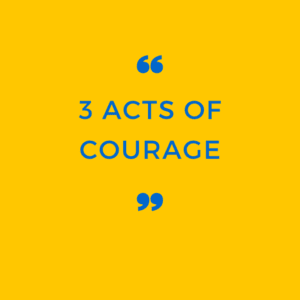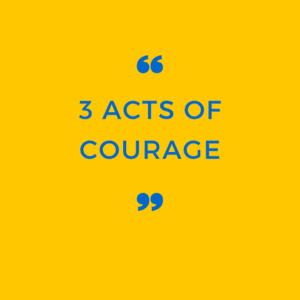My MBA start-up competition @hultbiz just finished. My best teams were awesome. Every team demonstrated plenty of inspiration and perspiration, but the best teams were willing to do a few very uncomfortable things that the average teams weren’t.
The rock star teams got out of the building and exposed their ideas to the real world – potential customers, experts, investors – and they listened.
They shared their ideas with their peers – especially their student competitors. The reactions and critiques provided some of their best insights. And, despite common concerns, the real risk of the perfect competitor coming along, stealing an idea and executing it better is negligible. However, there is nearly 100% probability of learning something useful from other smart people with a different perspective.
The winning teams rehearsed their final pitch on video multiple times, reviewing and critiquing them as a team between takes. My winning team estimates that they practiced (and iterated) their pitch over 50 times. We are our own toughest critics.
To win, my students had to get better. To get better, they had to learn. To learn, they had to expose themselves and their ideas to rejection.
It would have been easy for my students to just continue asking Google for answers, creating more pretty PowerPoint slides and having yet another self-reinforcing conversation with their own team members.
For my students, it took 3 acts of courage for them to leave the familiar, comfortable and secure and enter the unfiltered, unregulated, unrelenting marketplace of ideas.
- As an instructor and mentor, I had to admit that neither my faculty peers nor I knew all the answers or sometimes even the right questions to ask. Given our roles of authority, this was a tall order
- My students had to venture out and start meeting strangers. They had to expose themselves to the very likely possibility of personal rejection
- Arguably the most difficult act; my students had to expose their ideas to unfiltered criticism
People often think of their ideas as being as precious and fragile as their own children. Our natural instinct is to tell others how great our ideas are are while insulating them from the danger of critique.
It’s frightening to expose yourself and your ideas – to make yourself vulnerable. By exposing your personal value to rejection in a job interview, by asking an investor to invest in you and your ideas or by asking your competitors what they really think, you’re likely to learn something that you didn’t know. And that can be scary.
I have found that most people, most of the time will be very helpful when asked respectfully for advice or for their opinion. Those same people, however, will almost never get new ideas on first exposure. In other words, they’ll say no. And from no, we can learn and get better.


